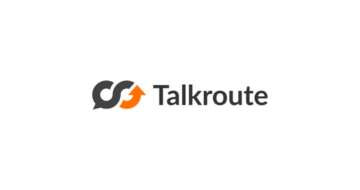
| Starting price | $19/mo |
|---|---|
| Free trial | Yes (7 days) |
| Free version | No |
Telephony software enables seamless communication and improved call management for your business. It replaces traditional phone lines and hardware-based systems with software-driven solutions and provides a variety of features to optimize call management, improve customer interaction, and increase overall communications efficiency.
Find the perfect telephony software for efficient business communication. Discover the best value solutions here.
Looking for a top-notch telephony software? Check out our list to find the leading solutions that streamline communications, improve call management, and drive your business forward. Browse our selection to find the perfect telephony software to meet the unique needs of your business.

| Starting price | $19/mo |
|---|---|
| Free trial | Yes (7 days) |
| Free version | No |
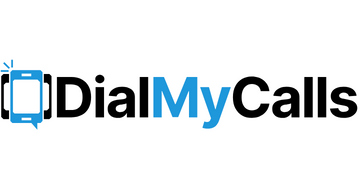
| Starting Price | $7.49/mo |
|---|---|
| Pricing Model | Per credit or contact |
| Free Trial | Yes |
| Free Version | No |

| Starting price | $29 /mo |
|---|---|
| Pricing model | Per Toll-free |
| Free Trial | No |
| Free Version | No |
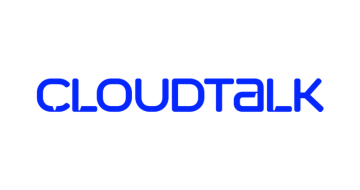
| Starting price | $25/mo |
|---|---|
| Free trial | Yes, 14 days |
| Free version | No |
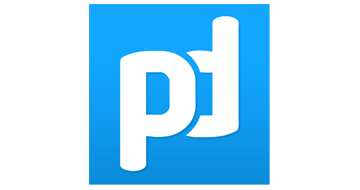
| Starting Price | $15.00/mo |
|---|---|
| Pricing Model | Per User |
| Free Trial | Yes |
| Free Version | No |
| Starting price | $15/mo |
|---|---|
| Pricing model | Per Agent, Subscriber based |
| Free Trial | Yes |
| Free Version | No |
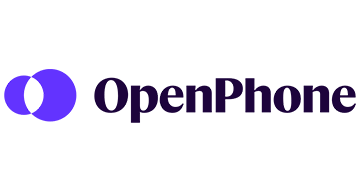
| Starting Price | $10 per user/month |
|---|---|
| Pricing Model | Per User |
| Free Trial | Yes |
| Free Version | No |
Choosing the best software for the telephony needs of your business can be hard. There are many options available, and it’s easy to get overwhelmed.
This guide will help you narrow down your search by outlining the key features that all quality software should have. As you go through each one, you’ll learn what questions to ask and pitfalls to avoid. You’ll also be able to ensure that your telephony system performs well now and in the future.
Let’s get started.
This type of business communications system manages calls and the organization’s conversations with customers. It is essentially a set of tools and features, such as call routing and automated attendants, that help businesses manage calls to increase efficiency and productivity.
Most software programs come with basic features, including automatic call distribution (ACD), interactive voice response (IVR), call queuing, and others. However, companies also can add features based on their needs. For example, if a company has remote teams, they can invest in solutions that allow employees to receive calls even when they are not in the office.
In many cases, the software integrates into contact center solutions. This means that agents within the contact center can use telephony tools when talking to customers over the phone. They can use these tools for customer service purposes or for managing inbound calls from prospects if your business uses the product for outbound calling activities.
The best telephony products function as an interface between a telephone network and a computer network, such as the Internet.
Traditionally, the phone network comprises wired, or landline phones that use a public switched telephone network (PSTN) as their communication infrastructure. The PSTN connects public networks worldwide through a series of interconnected switches.
Telephony systems use software to manage calls coming in and out of the PSTN using a media gateway controller (MGC). The software converts between the two different technologies by separating call signaling from the media stream. Moreover, it contains sounds and images. Call signaling sends information about how calls should be routed based on individual needs, while media streams carry all other data.
The software can act as an interface or bridge between your business’s phone system and its customer relationship management (CRM) system to efficiently monitor calls coming into or going out of your organization.
A telephony application also allows you to use your laptop or mobile device as a personal phone with multiple lines and extensions. The key features of this software include:
At SaasGenius, we follow a meticulous methodology to evaluate the best telephony software solutions. Our evaluation process combines a comprehensive feature analysis, usability evaluation, customer support evaluation, external reviews and feedback, and the Genius Score, our unique rating system.
We thoroughly analyze the features and functionality offered and ensure that the user experience and user interface are seamless. We also consider the quality and responsiveness of customer support, software reliability, and insights from external reviews. With this methodology, we provide businesses with reliable and trustworthy rankings of the best telephony software solutions available.
The typical telephony system software provides calling functions and other features that you can use in different business applications.
Here are some of the most common features you should look for in the software:
Using a call recording feature is crucial for keeping track of conversations with customers or other clients. A call recording feature allows you to record these conversations and save them as audio files for later reference. This can be extremely useful if there’s ever a dispute about what was said during a particular conversation or if you want to compare employee performance.
When dealing with many calls, it is essential to have a system in place so that each one gets answered quickly and efficiently. Telephony systems offer call routing features that allow you to route incoming calls based on their source (area code or country), or other criteria such as time of day or day of the week.
An essential piece of technology for any company running customer services or sales operations remotely is a CRM (Customer Relationship Management) system. Many software solutions can integrate with popular CRMs like Salesforce, ClickFunnels, or Zendesk. Therefore, you can sync customer records between systems and access account information while making or receiving calls.
The software provides businesses with a wide range of benefits. Some of these benefits include:
A competent customer service department is a crucial factor in the success of any business. However, it can be challenging to ensure that your customer service team operates at its full potential. Telephony systems can help you ensure that your customer service team is operating at maximum efficiency by giving them access to call statistics and automatic call distribution (ACD).
These features allow your employees to see how many calls they’ve handled and the average length of time their calls have been, respectively. Call statistics also enable supervisors to monitor which employees are handling the most calls to ensure they’re not being overworked. ACD automatically distributes incoming calls evenly among available agents, which helps reduce wait times for customers.
A cloud-based telephony solution is ideal for small companies because it allows their voice communications infrastructure to scale along with them quickly as they grow. If you need more features or if your company expands, it’s as simple as signing up for a new plan. There’s no need to worry about buying additional hardware or upgrading your existing equipment. Everything will be available through your account settings online.
Telephony system software offers numerous unified communications tools that you can use to improve communication within your company and between clients and employees. For example, you can use the software for:
Telephone software is an essential tool for many types of companies.
Any business that has a large customer support team will benefit from a system that tracks customer interactions. It also allows the use of predictive tools to improve customer satisfaction.
Since telephony systems can integrate with CRM tools, any sales-based business can take advantage of this. Sales reps can access a reliable database of potential customers including previous sales data while on a call.
If your business relies on the phone, you should consider buying this software. Anyone who uses the phone to conduct business can benefit from features like call recording, voicemail transcription, and analytics.
A small company might not have an IT department or an in-house tech support team. As a small business owner, your time is already stretched thin as you wear many hats, including being the head of IT. When you buy a telephony system, the vendor will provide you with the support you need at no extra cost.
Many telephony systems offer a free version of their software. However, free versions of the software will often only include basic features such as call forwarding, auto-attendant, and voicemail. Even so, these solutions usually don’t offer the full range of those features that most businesses are likely to need. For example, vendors may limit the number of extensions or users you can have on your account.
Therefore, you may want to consider upgrading to a paid subscription if your business grows. Paid plans typically start at $25 per month and feature unlimited extensions, outbound calling, and custom greetings. This type of plan is ideal for businesses with fewer than five employees who make and receive many calls. You can also add additional services like call recording or desktop sharing at an extra cost.
There are many types of software that allow businesses to manage their phone services. The kind of software that best fits your needs will depend on your business’s size and scale, as well as the needs of your customers and employees.
The popular SIP-based software is a good choice for large businesses. SIP, or Session Initiation Protocol, allows companies to use VoIP technology. It gives employees access to phone systems from anywhere to take calls from their desk phones, smartphones, or other devices. This flexibility is a significant benefit for employees who frequently travel or work remotely.
A telephony system based on hosted software is the most common option for small businesses with fewer than 100 employees. Hosted services allow you to use third-party providers to manage your phone systems. This offers many benefits, including scalability, which means you can easily add or remove users as needed without paying for expensive upgrades or investing in new hardware.
Telephony systems using Voice over Internet Protocol (VoIP) technology allow users to make telephone calls using a broadband Internet connection. This is different from the standard analog phone line. Moreover, these services convert your voice into a digital signal that travels over the Internet. It also turns the signal back to sound when it reaches its destination.
There have been some considerable advancements in telephony developments over the last few years. Most of them are due to the increased reliance on smartphones. If you’re looking to upgrade your system, consider these current trends:
Your employees can now access their phone systems through mobile applications. This offers instant access to voicemails and allows employees to place calls using work numbers. It also allows them to record calls while away from their desks.
Most telephony systems integrate with other business platforms, such as CRM systems, allowing employees to pull up relevant customer data while on a call. This provides a seamless experience for customers and salespeople and makes it easier for the sales team to close a deal.
For those living in urban areas, noise cancellation is significant. Employees should be able to hear their customers clearly without background noise getting in the way. Good noise cancellation helps prevent miscommunication between the two parties and ensures that clients feel heard and understood.